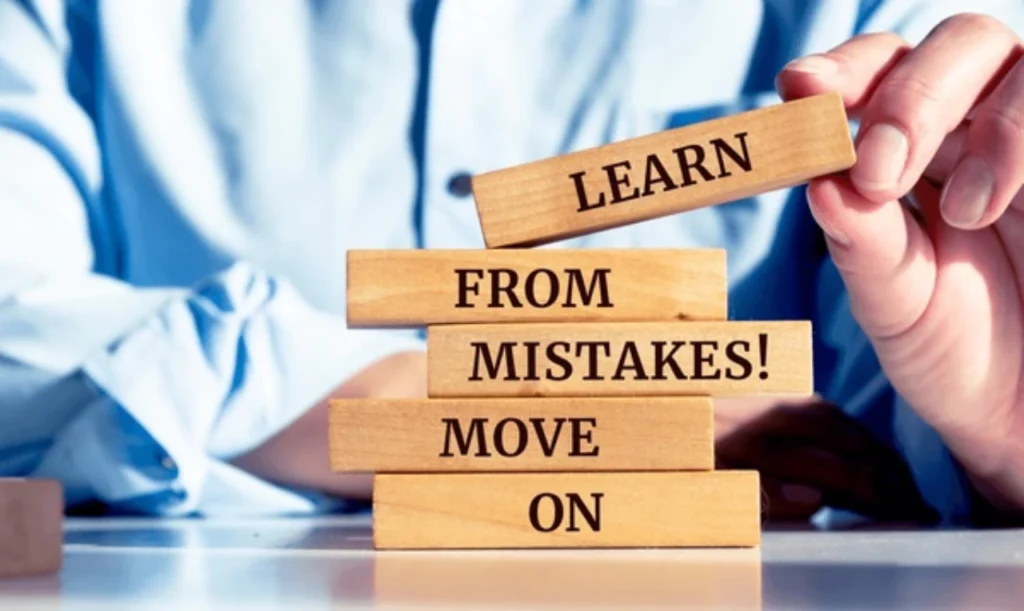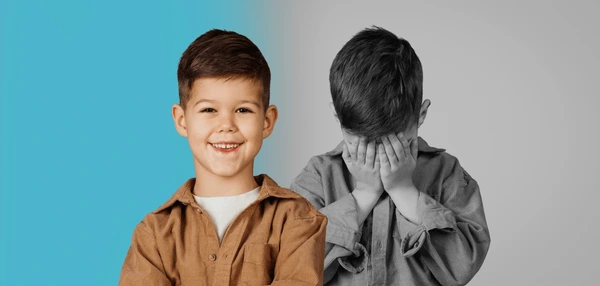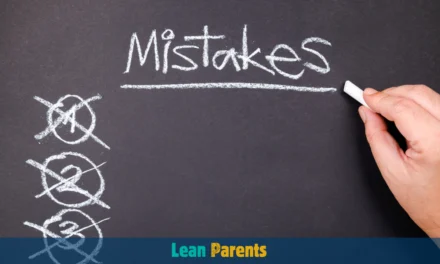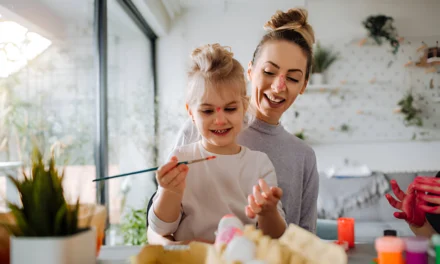Emotional confidence is key for a child’s growth, but it’s often ignored. Kids learn fast from birth, and their confidence is as vital as their skills1. This article shares seven ways parents can help their kids feel more confident. These methods help kids become resilient, self-aware, and express themselves positively.
Key Takeaways
- Emotional confidence is as crucial as skill development for children’s growth.
- Diversifying skills and embracing trial and error can foster children’s confidence.
- Recognizing effort, not just accomplishments, is essential for building self-esteem.
- Involving children in age-appropriate tasks strengthens their sense of self-worth.
- Balancing challenges with opportunities for success is recommended for children.
Understanding Emotional Confidence in Child Development
Emotional confidence is key in child development. It affects brain growth, social skills, and mental health. About 15-20% of kids are born highly sensitive, feeling things more deeply2. This sensitivity can shape their confidence but also boosts empathy and creativity.
It’s important for parents to grasp how emotional confidence ties into their child’s growth. This knowledge helps them support their kids better.
The Role of Brain Development
The brain’s growth is crucial, especially the prefrontal cortex. It handles impulse control, decision-making, and emotions2. Helping a child manage their feelings and make good choices builds their emotional strength.
Impact on Social Skills
Emotional confidence greatly affects social skills3. Kids with strong emotional confidence talk better, work together, and solve problems with friends3. These skills are vital for their emotional health and help them make friends and handle social situations.
Connection to Mental Health
Emotional confidence also ties to mental health2. Kids with good emotional confidence feel better about themselves, stay optimistic, and handle setbacks well2. This helps them face childhood and teen years with strength and a positive outlook.
Understanding emotional confidence’s role in child development helps parents support their kids’ well-being. It sets them up for success in many areas of life.
Recognizing Signs of Low Confidence in Children
It’s important to spot low self-esteem in kids early. Children or teens with low self-esteem might give up quickly when things get tough4. They might act younger than they are, which can lead to teasing4.
Look out for signs like falling grades and less interest in activities4. They might also get sad, angry, or quiet a lot4. Saying things like “I never do anything right” can show they’re struggling with confidence4.
Some kids might be very sensitive. They could get scared easily or notice tiny details. Spotting these signs lets parents help them feel better about themselves.
Building self-esteem takes time, but it’s worth it. Helping kids help others can make them feel more valued4. But, if they don’t get better with your help, they might need a professional4.
The Foundation of Building Emotional Resilience
Building emotional resilience in kids is key to boosting their confidence. It starts with creating a safe space for them to express themselves. This also means building trust and teaching them how to cope with tough times5.
Creating Safe Spaces
It’s crucial to give kids a place where they can feel safe to share their feelings. This space should be filled with acceptance and understanding. Here, they can talk about their thoughts and feelings without fear of being judged6.
Establishing Trust
Trust between parents and kids is vital for emotional resilience. When kids feel heard and supported, they’re more likely to open up. This helps them build the confidence to face life’s challenges6.
Developing Coping Mechanisms
Teaching kids how to handle stress is empowering. It includes teaching them problem-solving, mindfulness, and how to see setbacks as chances to grow6.
| Key Competencies for Social-Emotional Health | Description |
|---|---|
| Self-Awareness | Recognize one’s emotions, values, strengths, and limitations |
| Self-Management | Regulate one’s emotions, thoughts, and behaviors |
| Social Awareness | Empathize with others and appreciate diversity |
| Relationship Skills | Establish and maintain healthy interactions |
| Responsible Decision-Making | Make constructive choices about personal and social behavior |
These core competencies are key to building emotional resilience in kids5. By nurturing these skills, they can better handle challenges, keep positive relationships, and thrive in tough times6.
“Emotional resilience is the ability to adapt to stressful situations and cope with life’s challenges. Children who are emotionally resilient are better equipped to handle stress, build healthy relationships, and maintain a positive outlook even during difficult times.”
In the end, building emotional resilience gives kids the confidence and skills to succeed in life6. By creating a safe space, building trust, and teaching them essential social-emotional skills, parents can help their kids build a strong emotional foundation for a bright future.
Modeling Positive Behavior as Parents

As parents, we shape our children’s self-confidence and emotional health. By showing positive behavior, we give our kids great examples to follow. This means being optimistic, acknowledging worries, and learning from mistakes7.
When we show confidence in our abilities, our kids feel more empowered. They learn to take risks and try new things. This helps them grow into confident and positive individuals8.
Studies show that environmental factors greatly influence a child’s anxiety. Parents play a big role in shaping their child’s emotional health through their actions and mindset8.
Behavior Skills Training (BST) is a helpful method. It teaches parents how to change their child’s behavior. This includes steps like Instruction, Modeling, Rehearsal, and Feedback7.
| Parental Characteristics | Impact on Child |
|---|---|
| Demonstrating optimism when facing challenges | Fosters a growth mindset and resilience in children |
| Acknowledging anxiety without dwelling on it | Teaches children to manage their emotions healthily |
| Showing how to learn from mistakes | Encourages a positive attitude towards failure and problem-solving |
By modeling positive behavior, parents help their children grow strong and confident. This prepares them to face life’s challenges with resilience and self-assurance87.
The Power of Praise and Recognition
Effective praise and positive reinforcement are key to boosting emotional confidence in kids. But how we give praise matters a lot. Specific praise that focuses on a child’s effort and progress is more impactful than generic compliments.9 It’s also important to praise at the right time and be genuine. This helps build a child’s self-esteem and self-worth10.
Specific vs. Generic Praise
When praising, be specific and highlight what the child did well. Instead of giving broad compliments, focus on the specific actions or behaviors you want to encourage10. This makes the child understand their achievements better and boosts their self-esteem9.
Timing and Authenticity
The timing and authenticity of praise are key. Praise should come right after the child does something good, linking the action to the praise10. Also, praise must be real and based on the child’s true efforts and achievements. Authentic praise, rooted in a child’s genuine efforts and achievements, is more impactful than empty compliments.9 This way, children feel their successes are truly valued, building their confidence and self-worth10.
By using these effective praise and recognition methods, parents and caregivers can create a supportive environment. This environment helps children grow emotionally and reach their full potential11.
Creating Opportunities for Success
It’s key to give kids chances to succeed to boost their confidence and skills. Encourage them to try new things and follow their interests. This way, they feel the joy of achieving and grow in self-esteem. Setting up achievable challenges helps them feel successful. It motivates them to face harder tasks and grow.
Studies link envy from comparing to others with lower self-confidence12. We must celebrate each child’s progress and achievements, not just compare them. This change can greatly improve a child’s confidence and how they see themselves.
- Encourage kids to explore their interests and learn new skills. This could be trying a new sport, learning music, or doing art.
- Give kids tasks that match their abilities. This lets them feel proud of completing a project.
- Focus on the effort and progress, not just the outcome. This positive feedback helps build confidence.
Self-care, like eating well, exercising, meditating, and sleeping well, boosts self-confidence12. Being kind to oneself when facing setbacks also increases confidence12.
| Skill Development | Achievements | Confidence Building |
|---|---|---|
| – Exploring new interests – Developing versatile abilities | – Experiencing success – Celebrating progress | – Positive self-talk – Facing fears and taking risks |
By supporting skill growth, celebrating achievements, and building confidence, we help kids reach their best. This way, they develop a strong sense of self-worth1314.
“Believing in and building upon personal strengths is related to higher levels of self-confidence and life satisfaction.”12
In short, giving kids chances to succeed is vital for their emotional growth. By encouraging them to diversify, celebrate their wins, and grow, we help them face challenges. This builds resilience and a strong sense of self-belief.
Embracing Mistakes as Learning Tools

Mistakes are a normal part of learning. Teaching kids to see them as chances to grow is key for emotional confidence. By facing failure with a positive attitude, parents can help kids become more resilient and skilled at solving problems.
Handling Failure Positively
When kids make mistakes, we should see them as steps towards getting better. A study found that believing in one’s answers can help in learning15. Colin Seale suggests that anticipating common mistakes can deepen understanding15. Asking kids to pick the less wrong answer can also sharpen their thinking15.
Building Problem-Solving Skills
Mistakes are important for learning. They help the brain create stronger solutions15. Teachers can make mistakes valuable by analyzing them to understand students better15. Having a growth mindset is key to overcoming failures16.
Being persistent and determined is crucial for bouncing back from setbacks16. Seeing failure as a motivator can lead to more success16. Reflecting on mistakes is essential for learning from them16. Identifying patterns in mistakes helps in finding areas for improvement16. Taking steps to avoid repeating mistakes is important for learning16.
By creating a space where mistakes are learning chances, parents can help kids grow resilient and skilled. This is vital for emotional confidence.
Supporting Emotional Confidence Through Activities
Getting kids involved in different activities can really help boost their confidence and self-esteem. Things like arts, sports, and hobbies are great. They let kids express themselves, learn new skills, and feel a sense of achievement. Social Emotional Learning (SEL) helps kids develop important social and emotional skills17. This can make them feel more confident and good about themselves.
Activities that challenge kids but also support them can really help. Giving kids responsibilities makes them feel proud and useful18. Teaching them to think positively and change negative thoughts can also boost their confidence18.
| Confidence-Building Activity | Description |
|---|---|
| Power Word Collage | Students pick a word that shows how they want to feel or act. They find images that match that word, making a motivational collage. |
| Dear Me Letters | Students write letters to themselves with advice and motivation for a specific goal. It’s a meaningful way to build confidence. |
| “I Am” Reflection | Students think about their identity by listing roles that are important to them and positive traits. It helps build a positive self-image and boosts confidence. |
| Ways to Grow | Students set goals that match their strengths and growth areas. It helps build confidence and self-acceptance. |
By adding various activities to the curriculum and creating a supportive environment, schools and parents can help kids. They can develop confidence-building activities, skill development, and self-expression. This improves their emotional well-being and confidence. Using SEL in the classroom can also help by teaching self-awareness, building positive relationships, and encouraging a growth mindset17.
“Confidence is not something that can be given to you; it must be earned.” – Sara Blakely
By letting kids do meaningful activities, they can explore their interests, learn new things, and succeed. This builds a strong foundation of emotional confidence that will help them throughout their lives.
The Impact of Social Connections
Building strong social skills and having positive peer influence and family support is key for kids’ emotional confidence. Research shows that social ties help shape self-esteem. Supportive relationships help it grow, and high self-esteem makes friendships better19.
Peer Relationships
Good friendships can make kids feel better about themselves and feel like they belong19. Kids who are accepted by their friends tend to have better social skills and more emotional confidence. Activities outside of school, teaching empathy, and showing how to solve problems can help build these friendships19.
Family Dynamics
A supportive family is essential for kids’ emotional confidence19. Strong family support gives kids a safe place to try new things and learn about themselves. Doing things together, talking openly, and celebrating wins can make a home environment that boosts emotional confidence19.
| Key Findings | Percentage |
|---|---|
| Studies reporting that social support benefited symptoms of depression in samples other than pregnant women | 83% (19 out of 23) |
| Studies finding that low social support increased postpartum depressive symptoms among pregnant women | 83% (24 out of 29) |
| Studies indicating that feeling lonely at baseline was related to adverse outcomes at follow-up | 83% |
| Reports showing that smaller social network size predicted depressive symptoms or disorder at follow-up | 5 out of 8 |
Research shows how big of a role social connections play in our mental health1919. Building strong peer influence and family support can really help kids feel more confident and set them up for success20.
“Studies have found that older adults with close friends and healthy social supports are likely to live longer than their peers with fewer friends.”20
By focusing on social skills, positive peer influence, and family support, we can help kids grow emotionally strong191920.
Developing Independence and Decision-Making Skills
It’s key to help kids grow their21 independence and decision-making skills. This boosts their21 self-esteem and21 self-reliance. We do this by giving them chances to make choices, take on tasks, and solve problems on their own.
Letting kids22 make choices and22 solve problems helps them grow. Parents are vital in supporting this growth. They offer21 guidance, resources, and emotional support.
Overcoming fear of rejection is key to growing independent. Kids can do this by23 knowing themselves, following their interests, being kind to themselves, and taking smart risks. This helps them feel more confident and ready to face life’s challenges.
| Strategies for Cultivating Empowering Independence | Benefits |
|---|---|
| Encouraging Self-reflection and Self-awareness | Increased self-understanding, improved decision-making |
| Providing Decision-making Opportunities | Critical thinking development, fostering independence, promoting responsibilities |
| Supporting Goal-setting and Planning | Sense of direction and purpose, motivation, progress tracking |
| Promoting Problem-solving Skills | Analytical thinking, evaluating options, resilience |
| Building Self-confidence and Self-efficacy | Belief in one’s abilities, willingness to take risks, personal growth |
Using these strategies at home, in school, and in the community helps kids develop important skills. They learn to make decisions and be self-reliant. This prepares them to handle life’s challenges with confidence and21 personal fulfillment.
Remember, the journey towards independence and decision-making skills is a gradual process that requires patience, support, and encouragement from both parents and educators.
“Empowering children to make their own choices and solve problems independently lays the foundation for a lifetime of self-reliance and personal growth.”
By focusing on21 autonomy and21 decision-making, we help kids become more confident and resilient. This prepares them to face life’s challenges head-on.
Nurturing Self-Expression and Creativity
Encouraging kids to explore their creativity through art, music, and sports boosts their emotional health. These activities are key for expressing feelings, learning new skills, and finding their unique selves24.
Art and Music
Art lets young artists show their feelings and thoughts, improving their fine motor skills and confidence24. It also helps with thinking and problem-solving, sparking imagination and creativity24. Music, on the other hand, enhances motor skills and spatial awareness, promoting self-expression and teamwork24.
Physical Activities
Sports and movement improve gross motor skills and brain functions, enhancing memory and problem-solving24. Music, through singing or playing instruments, boosts brain areas for language and memory, aiding in cognitive and language growth24.
Storytelling boosts language skills and imagination, improving communication and creativity24. Interactive stories and role-playing encourage critical thinking and community building24. Creating stories through drawing or play enhances creativity and language skills, building confidence and critical thinking24.
| Creative Activity | Benefits |
|---|---|
| Art (painting, sculpting, collage) | Emotional expression, fine motor skills, visual-spatial abilities, self-confidence, cognitive growth, problem-solving, imagination, divergent thinking24 |
| Music (singing, dancing, instrument playing) | Motor skills, coordination, spatial awareness, self-expression, social interaction, teamwork, empathy, cognitive growth, language development24 |
| Storytelling (drawing, dictation, dramatic play) | Language acquisition, vocabulary expansion, comprehension, grammar, imagination, creativity, communication, critical thinking, self-confidence24 |
| Physical Activities (movement, sports) | Gross motor skills, cognitive functions, memory, attention, problem-solving, emotional release, stress management24 |
“Creativity is a powerful tool for self-expression, helping children explore their emotions, develop their unique identities, and build their confidence.”
By supporting kids in artistic, musical, and physical activities, we help them grow creatively and confidently. This empowers them to excel emotionally and intellectually242526.
Setting and Achieving Realistic Goals
Helping kids set and reach realistic goals boosts their emotional confidence. By making big goals smaller, they learn to keep going and enjoy their progress. This way, they feel proud of themselves and believe they can do more27.
Goals that are too high can make kids feel bad about themselves. But, setting goals that are just right lets them change them if needed27. When they reach their goals, they feel happy and want to set even bigger ones27.
- Teach them to grow: Show kids that hard work and trying again can help them get better at things27.
- Make big goals smaller: Break down big goals into smaller, easier steps. This makes success feel closer and less scary27.
- Celebrate every win: Praise your child for every small success. This helps them feel good about what they’ve done27.
- Learn to adjust: Teach kids it’s okay to change their plans if things don’t go as expected. This helps them learn to solve problems and keep going27.
- Help them find their drive: Encourage kids to take charge of their goals. This helps them find their own reasons to succeed27.
By helping kids set goals, we teach them important skills for growing and succeeding27. This not only makes them feel more confident but also prepares them for a future full of goals28.
The secret to good goal-setting is to aim for goals that are achievable but still challenging. By teaching kids to dream big, break down goals, and celebrate their wins, we help them believe in themselves and reach their highest potential28.
Building a Growth Mindset
Having a growth mindset is key for lasting emotional confidence. It teaches kids that their skills can grow with effort, learning, and hard work29. This mindset helps kids bounce back, take on challenges, and see failures as chances to learn and grow29.
Dr. Carol Dweck, a psychologist at Stanford, says a child’s mindset is what really matters. She found that people can grow their basic abilities, making environments that support growth crucial for all30.
- Those with a growth mindset keep going even when things get tough29.
- Parents with this mindset see failures as chances to learn, leading to better grades and results29.
- This mindset has really helped students in school, boosting their grades, motivation, and ability to handle problems29.
- At work, people with a growth mindset are more open to challenges, eager to learn, and stay strong in tough times29.
Carol Dweck and Kyla Haimovitz show how important parents are in shaping kids’ beliefs about their abilities29. Praising effort and hard work, not just talent, helps kids grow in a healthy way30.
| Fixed Mindset | Growth Mindset |
|---|---|
| May avoid challenges and become anxious when faced with uncertainty | Actively seek out challenges as opportunities to acquire new skills and knowledge |
| Control their effort levels to avoid failure | Understand that effort and practice change the brain |
| View their abilities as static and unchangeable | Believe their abilities can be developed through hard work and dedication |
Adopting a growth mindset is vital for kids’ personal development and a positive learning attitude. By creating an environment that values effort, persistence, and learning from mistakes, we help kids build the emotional strength and resilience they need to succeed31.
“The view you adopt for yourself profoundly affects the way you lead your life.” – Carol Dweck
The Role of Routine and Structure
Creating daily routines and structure gives kids a deep sense of security. Having predictable patterns in their day makes them feel safe and in control. This reduces anxiety and boosts their self-confidence32. A study in The Lancet Psychiatry shows that people who prefer daytime routines sleep better, which is linked to better mental health32. Bad sleep cycles can lead to mental health issues32.
It’s important to balance structure with flexibility. This helps kids be adaptable while keeping them secure33. A study by Hemmeter, Ostrosky, and Fox in 2006 found that engaging, predictable environments are key for kids’ social and emotional growth33. Participating in familiar activities helps kids form relationships and feel confident33.
- Include personal routines like exercise or relaxation to improve well-being32.
- Have routines in relationships, like regular talks or activities, to connect and reduce stress32.
- Develop routines at work, like learning or networking, for personal and career growth32.
Adding routines in personal, relationship, or professional areas helps achieve goals and feel accomplished3234. Studies show that family routines are linked to kids’ social skills and school success34. Low family routine levels are connected to oppositional defiant disorder in kids34.
| Routine Type | Benefits |
|---|---|
| Personal Routines | Improved physical, mental, and emotional well-being |
| Relationship Routines | Enhanced connections and reduced stress |
| Professional Routines | Personal and career development |
Creating routines and structure gives kids a sense of predictability and emotional security. This is key for building their confidence and resilience. By adding routines in different life areas, families can create a supportive environment for a child’s growth and well-being.
“Routines help children feel safer as they know what to expect. Following routines allows them to demonstrate emerging independence and adapt to change more easily.”33
Conclusion
Boosting emotional confidence techniques in kids is a big job that needs a lot of effort and understanding from parents. By using these seven techniques, parents can help create a space that boosts self-esteem and resilience. This helps kids feel good about themselves and express their feelings positively35.
Self-efficacy is very important for self-confidence. It makes kids more willing to try new things and keep going even when it’s hard35. When kids have more self-confidence, they see failures as chances to learn and grow35.
Every child is different, so it’s important to tailor these child development strategies to fit each child’s needs35. Self-confidence helps kids make and keep healthy relationships. It also helps them communicate clearly and stand up for themselves35.
Emotional regulation is key to managing stress well. It helps kids stay calm and think more clearly35.
By following these parenting tips, parents can help their kids grow emotionally strong. This strength helps them face the ups and downs of growing up with confidence36. Feeling confident in what you can do affects how you feel, like when you’re anxious or angry36.
The choices we make are influenced by how we feel about them. This shows how emotions play a big role in our decisions36.
FAQ
What is the role of emotional confidence in child development?
How can parents recognize signs of low confidence in children?
What are effective techniques for building emotional resilience in children?
How can parents model positive behavior to boost their child’s confidence?
What is the impact of praise and recognition on building confidence in children?
How can parents create opportunities for their children to succeed and build confidence?
Why is it important to teach children to embrace mistakes as learning opportunities?
How can engaging children in activities support their emotional confidence?
What is the role of social connections in developing emotional confidence?
How can fostering independence and decision-making skills contribute to building emotional confidence?
Source Links
- 12 Tips for Raising Confident Kids – Child Mind Institute
- Building confidence in children – Be You
- About Confidence
- Signs of Low Self-Esteem in Children & Teens
- Building Life-long Resilience: The Social-Emotional Skills Connection – ACSI Blog
- How to help your child build emotional resilience | News
- Helping parents improve their children’s behaviors
- The Effect of Parental Modeling of Anxious Behaviors and Cognitions in School-Aged Children: An Experimental Pilot Study
- The Power of Praise: Here’s Why You Should Compliment Yourself
- The Power of Effective Praise: A Guide for Teachers to Motivate Students – PublicSchoolWORKS
- The Power of Workplace Recognition
- Want to Boost Your Confidence? Give These 9 Tips a Try
- Want to Be a Confident Leader? Strengthen Your Emotional Intelligence
- Improving Emotional Intelligence (EQ): Expert Guide
- The Mistake-Friendly Classroom
- Building Self-Confidence Through Embracing Failure and Learning from Mistakes.
- Unlocking Potential: Enhancing Confidence and Self-Esteem in Elementary Students with Social Emotional Learning | Everyday Speech
- 11 Confidence Building Activities for Kids | Social Emotional Workshop
- Social connectedness as a determinant of mental health: A scoping review
- The health benefits of good friends
- Fostering Autonomy: Strategies for Cultivating Empowering Independence | Everyday Speech
- Empowering Independence: The Key to Successful Transitioning into Adulthood | Everyday Speech
- Seeking Independence and Building Self-Esteem – Start My Wellness, Ferndale, MI
- The Importance of Creativity and Self-Expression in Childhood – Tribe Early Learning
- Self-Expression & Digital Expression: What is it and why is it important?
- The Healing Power of Art and Creativity – Salience Health
- How to Set Realistic Goals: 11 Tips to Reach the Clouds With Your Feet on the Ground
- Mental Health Goals | Charlie Health
- Growth Mindset: Develop the Confidence to Succeed
- 6 Ways to Develop a Growth Mindset for Success
- How can the growth mindset improve your confidence in learning?
- The Power of Routines in Your Mental Health
- The Importance of Schedules and Routines | ECLKC
- Psychological Benefits of Routines
- Self-Confidence and Emotional Regulation: Managing and Expressing Emotions.
- Confidence and Emotional Experience





